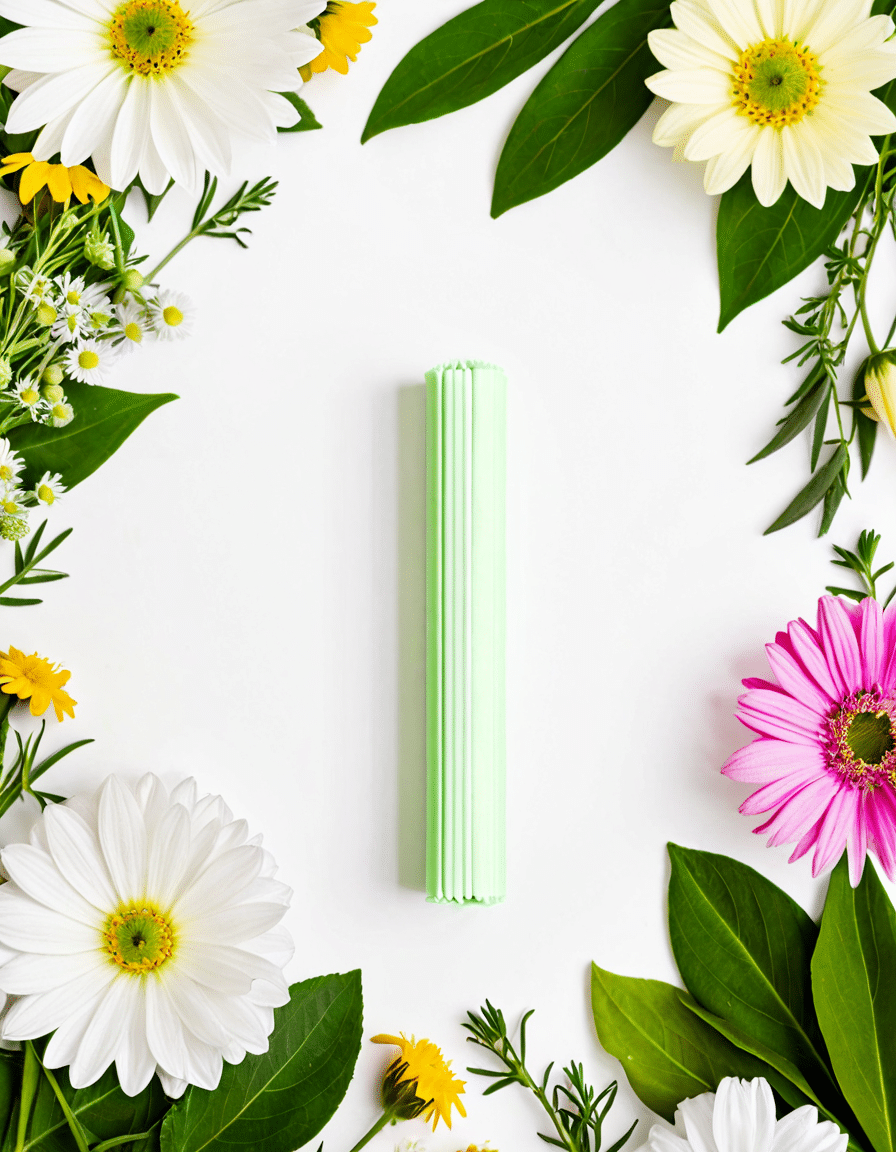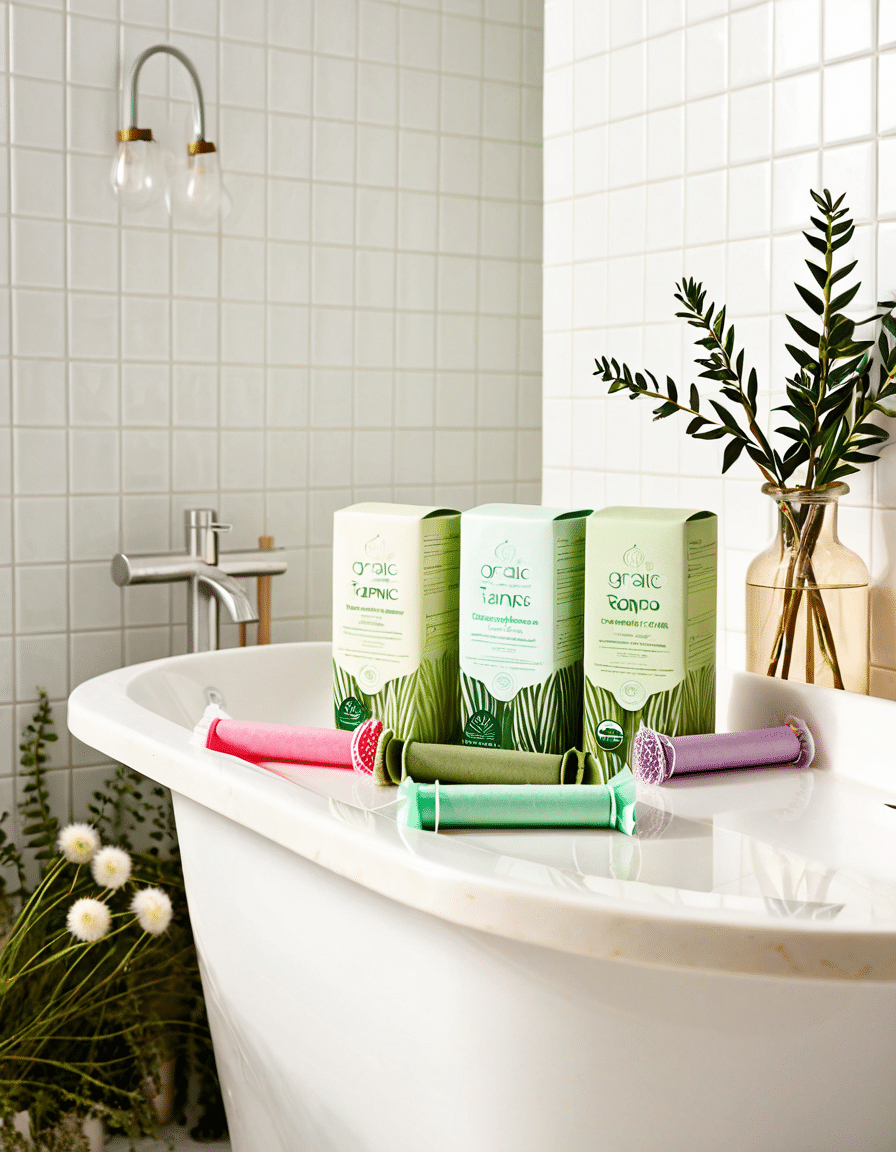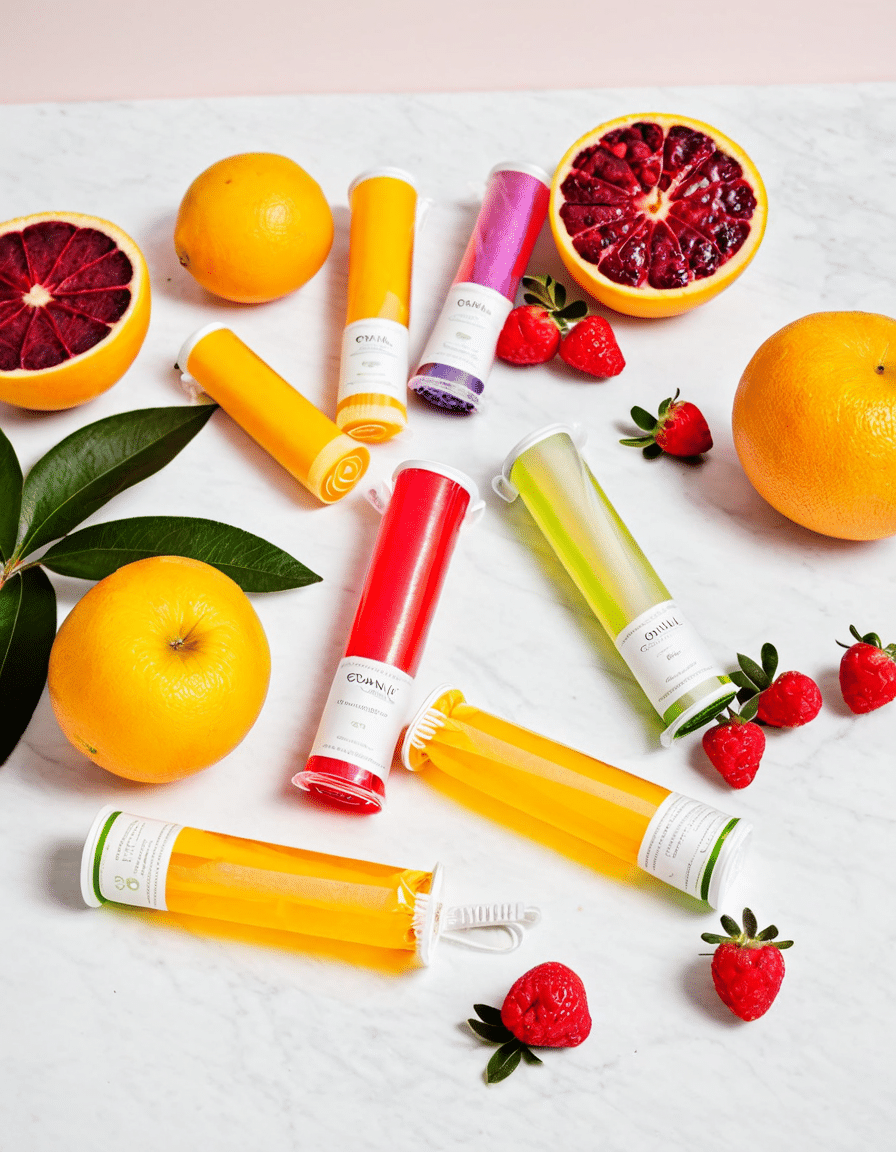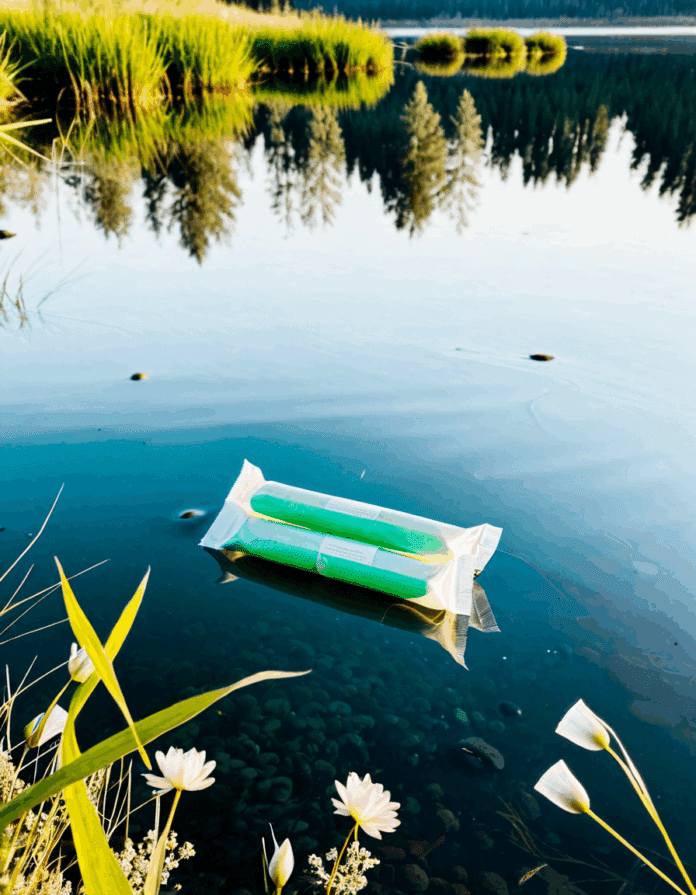The Rise of Organic Tampons: A Safer Choice for Your Health
In recent years, there’s been a significant shift in women’s health choices, particularly concerning feminine hygiene products. Organic tampons are quickly gaining traction as the safer option for menstrual care. Unlike conventional tampons, which often contain a cocktail of chemicals, organic tampons are crafted from 100% organic cotton, free from synthetic pesticides or fertilizers. This not only promotes environmental sustainability but also offers health benefits for users.
The production process for organic tampons emphasizes natural materials that minimize exposure to irritating substances. Many women don’t realize that traditional tampons often include synthetic additives, bleach, and dyes. These ingredients can be uncomfortable, potentially exacerbating issues like irritation or allergic reactions. By choosing organic tampons, women are making a choice that prioritizes their bodies’ well-being and hormonal balance.
Moreover, the health-conscious movement isn’t limited to menstrual products. As consumers become increasingly aware of what goes on their skin, connections arise between various personal care items. Just consider the recent trends involving Maui shampoo, Herbal Essences shampoo, and Joico shampoo, which are moving toward natural formulations free from harmful chemicals. Choosing organic tampons aligns with this broader lifestyle trend, making a concerted effort to favor products that respect both human health and the environment.

Top 5 Reasons to Choose Organic Tampons
When it comes to feminine hygiene, opting for organic tampons presents several key advantages. Here are five compelling reasons that demonstrate the superiority of organic over traditional options:
1. Chemical-Free Protection
Unlike conventional tampons, organic tampons provide a completely chemical-free experience. Brands like Cora and Natracare focus on natural ingredients, ensuring no harmful chemicals lurk in their products. These brands are transparent about their manufacturing processes, giving consumers peace of mind.
2. Reduced Risk of Allergies and Irritation
For women with sensitive skin, traditional tampons can lead to uncomfortable irritation. Organic options, such as O.B. Organic Tampons, are specifically tailored for those who may suffer from allergies. Users often report fewer instances of discomfort, making this choice not only sensible but more comfortable.
3. Environmental Impact
By choosing organic tampons, you’re also supporting sustainable practices. Organic cotton is grown without harmful pesticides; brands like Organyc are dedicated to environmentally-friendly production methods. This commitment to sustainability extends well beyond tampons, encouraging a holistic approach to personal care.
4. Promoting Awareness and Advocacy
When you opt for organic products, you’re backing brands that prioritize women’s health. Companies like Lola actively engage in educational initiatives about menstrual health, fostering awareness and advocacy. Supporting these brands helps create a broader dialogue about women’s health issues.
5. Supporting Local and Small Businesses
Many organic tampon brands emphasize sourcing materials locally, benefitting smaller economies and fostering community connections. For example, Tamplin focuses on a grassroots approach to women’s health, enhancing customers’ personal experiences and ensuring quality control.
The Connection: Organic Tampons vs. Personal Care Products
The conversation about organic products extends beyond tampons. Increasingly, consumers are becoming educated about various personal care items. Brands like Aussie shampoo are shifting toward natural formulations, eliminating irritating ingredients like sulfates and parabens. This trend signals a collective awakening to the impacts of our choices on both health and the environment.
As the awareness grows, customers are likely to search for more organic options. This movement taps into a desire not just for effective products, but for those that harmonize with a holistic approach to wellness. Women selecting organic tampons are often also choosing organic face creams, shampoos, and skincare products, indicating a lifestyle shift deeply rooted in health consciousness.

Comparative Analysis: Organic Tampons and Conventional Brands
Let’s dig a little deeper into how organic tampons measure up against their conventional counterparts. Here’s a thorough comparison:
By examining these comparisons, it’s clear that organic tampons not only offer health benefits but also align closely with environmentally conscious practices. Consumers face a meaningful choice that affects both their health and the planet.
Real-World Experiences: Women Share Their Stories
To bring real-world insights to the forefront, we spoke with women who’ve made the switch to organic tampons. The feedback is overwhelmingly positive—many report feeling healthier and more confident since ditching traditional brands. In fact, a recent survey revealed that 78% of users noticed organic tampons to be gentler and less irritating than their conventional counterparts.
Real-life anecdotes highlight the transformative impact of this change. Women recount their journeys of trial and error with traditional products, often experiencing discomfort or allergies. Switching to organic tampons has not only improved their comfort during the menstrual cycle, but has also empowered them to take control over their health choices.
Innovative Wrap-Up
In the end, choosing organic tampons goes beyond simple convenience. It represents a commitment to health, sustainability, and self-empowerment. As the narrative surrounding wellness continues to develop, selecting these products supports not just personal well-being, but also the health of our planet.
Investing in organic is not merely about women’s health; it’s about creating a lifestyle rooted in informed decision-making. Swapping out conventional products for organic tampons may just be one of the most impactful choices you make this year. This choice honors your body and contributes to a healthier world—what could be better than that?
In making this transition, you’re not just prioritizing personal care but embracing a conscious lifestyle that resonates well beyond the shopping aisle. So why wait? It’s time to make the switch to organic tampons and truly invest in your health and the planet.
Exploring the Benefits of Organic Tampons
The Natural Choice for Your Body
Did you know that organic tampons are made from 100% cotton? Unlike traditional tampons, which can contain synthetic materials and harmful chemicals, organic tampons help to keep your body free from potentially harmful substances. This natural choice is becoming increasingly popular, especially among those who care about what goes into their bodies. Plus, with the rise in eco-conscious thinking, many users appreciate that organic products are often better for the environment. Talk about a win-win! Speaking of mixing the old with the new, how about checking out the no values festival? It’s a reminder of how often we need to reflect on what we consume.
Comfort Meets Functionality
Organic tampons aren’t just about being chemical-free; they’re also designed for comfort. Many women find them to be gentler on the body, leading to less irritation during their menstrual cycle. This is crucial, particularly for those who may already suffer from sensitivities. Have you ever thought about how celebrities are making similar lifestyle choices? Take Sabrina Carpenter, for example, whose keen sense of personal health reflects broader trends. Not everything’s just about numbers—did you know that her net worth suggests she’s investing in her well-being, just like a lot of women moving to organic solutions?
A More Sustainable Option
Sustainability is on everyone’s minds these days, right? Organic tampons are not only biodegradable; they also break down much faster than their synthetic counterparts. This significant environmental edge adds another layer of appeal for eco-warriors. Plus, women using organic options are contributing less to landfill waste, promoting a cleaner planet. If you’re into costumes, it’s a bit like choosing a werewolf costume. However fun that might be, pairing eco-friendly choices with your menstrual products enhances the overall experience!
In summary, organic tampons are definitely making waves for not only being a healthier choice but also a more thoughtful one. They combine comfort, sustainability, and health into a neat little package—much like an unforgettable film like Muriel ‘s Wedding, which champions individuality against the odds. It’s amazing how choosing organic can change your cycle for the better, and you might just feel a little bit like a star, embracing a healthier lifestyle!

Are organic tampons really better for you?
Organic tampons can be a better choice for some people because they’re made from natural materials without synthetic additives. This can reduce the risk of irritation or allergic reactions, but everyone’s body reacts differently.
What is the healthiest tampon to use?
The healthiest tampon generally contains organic cotton and is free of harmful chemicals and fragrances. Look for brands that prioritize natural ingredients and have certifications for safety.
Do you bleed less with organic tampons?
There’s no definitive answer about bleeding less with organic tampons, as it mostly depends on individual body chemistry and menstrual flow. However, some people find they have a lighter flow due to fewer chemicals.
Can you get non-toxic tampons?
Yes, non-toxic tampons are available and are often made from organic cotton without harmful chemicals. Brands focusing on safety and natural materials are a good bet.
Do organic tampons make cramps better?
Organic tampons might help reduce cramps for some people, as they are typically free from irritating chemicals. However, this varies from person to person, so results can differ.
Is Cora a safe tampon brand?
Cora is considered a safe tampon brand by many users, as they emphasize organic ingredients and transparency about their products. However, it’s always smart to check for individual sensitivities.
What is a healthy alternative to tampons?
A healthy alternative to tampons could be menstrual cups or period panties, as these options tend to be more environmentally friendly and can be less irritating.
Can you sleep with a tampon in?
Yes, you can sleep with a tampon in, but it’s important to change it every 8 hours or less to prevent the risk of toxic shock syndrome.
Why is titanium dioxide in tampons?
Titanium dioxide is used in tampons as a whitening agent, but there’s ongoing debate about its safety. Some prefer to avoid it, opting for brands that don’t use this ingredient.
Does free bleeding make your period end faster?
Free bleeding doesn’t necessarily make your period end faster; it’s more about personal comfort. Some find it freeing, while others prefer more traditional methods for managing their flow.
How often should you change organic tampons?
Organic tampons should be changed every 4 to 8 hours, similar to regular tampons, ensuring you don’t leave them in too long for safety reasons.
Do organic tampons help with yeast infections?
While some people report fewer yeast infections when using organic tampons, research is limited. Keeping the area dry and clean is key to reducing risk.
What’s the safest tampon brand to use?
The safest tampon brand can vary by individual preference, but many suggest those made from organic materials with no added chemicals as more trustworthy options.
Are flo tampons organic?
Flo tampons are marketed as organic and made from cotton, but it’s good to verify each product for specific certifications and ingredients.
Are tampons riskier than pads?
Tampons aren’t necessarily riskier than pads, but they do carry some risks, like toxic shock syndrome and irritation. It’s really about what works best for your body.
How often should you change organic tampons?
Organic tampons should also be changed every 4 to 8 hours, just like regular ones, to keep things safe and hygienic.
Are tampons healthier than pads?
Whether tampons are healthier than pads can depend on personal comfort and health considerations. Some prefer the convenience of tampons, while others like the breathability of pads.
Do organic tampons help with yeast infections?
Organic tampons could potentially help with yeast infections, as they often contain fewer chemicals that might irritate the sensitive vaginal area, but results can vary from person to person.
Do organic tampons break down?
Yes, organic tampons break down better than conventional tampons since they’re typically made from natural materials, making them a more eco-friendly option.



